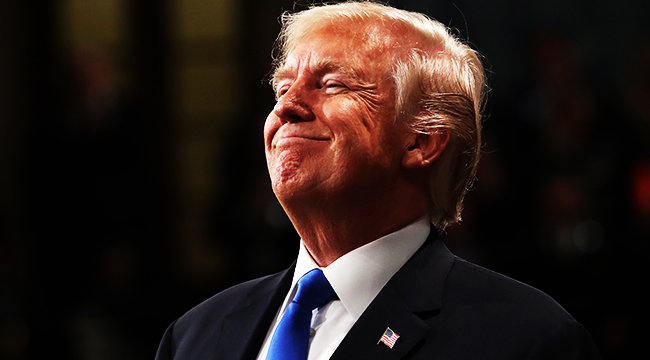
America needs a lot of steel, but deregulation and globalization has meant that steel in American products comes from around the world. Trump, however, is not a fan of globalization, at least publicly, and has promised in the past that he’ll use protectionist tariffs against foreign steel. Today he confirmed that those promises are, supposedly, being executed next week.
The tariff announcements appear to be spontaneous, as Trump only revealed it after shouted questions from reporters. He’s aiming to tax foreign steel by 25% and foreign aluminum by 10%:
He promised U.S. manufacturers that they will “have protection for a long time. … You’ll have to regrow your industries. That’s all I’m asking.” “We are going to have much more vibrant companies,” Trump added, during a listening session with several top U.S. manufacturing executives. The announcement came after a chaotic 12-hour period in which the president pushed for an announcement Thursday and abruptly summoned the executives to the White House.
This comes after repeated speculation that Trump would announce the tariffs, then that he wouldn’t, before announcing it seemingly at random. These tariffs have been the subject of considerable back-room wrangling in Washington and are strongly opposed by many Republicans:
Strong from Sasse. Calls Trump administration "a supposedly Republican one."
"The President is proposing a massive tax increase on American families. Protectionism is weak, not strong. You'd expect a policy this bad from a leftist administration, not a supposedly Republican one."— Bill Kristol (@BillKristol) March 1, 2018
Tariffs are designed to protect domestic industries, but the trade-off is that it also raises the price of those commodities. An increase in materials cost would be felt across almost every product Americans consume, from smartphones to cans of soup. It also might lay the groundwork for a trade war with China or other foreign partners, as they might retaliate by raising prices on American products, which might drive up prices across the world and cause financial problems that may cascade across the globe. Wall Street reacted with a nearly 500-point downward swing in trading.
Adding to the problem, a trade representative from China has just arrived in Washington, leading to this being seen widely as a diplomatic gaffe on top of everything else. That said, strong Republican opposition might make these tariffs impossible, and, like his tariff on solar panels, may be challenged in court. In the meantime, this will be yet another source of turmoil in a White House already full of confusion.
(via the LA Times)
